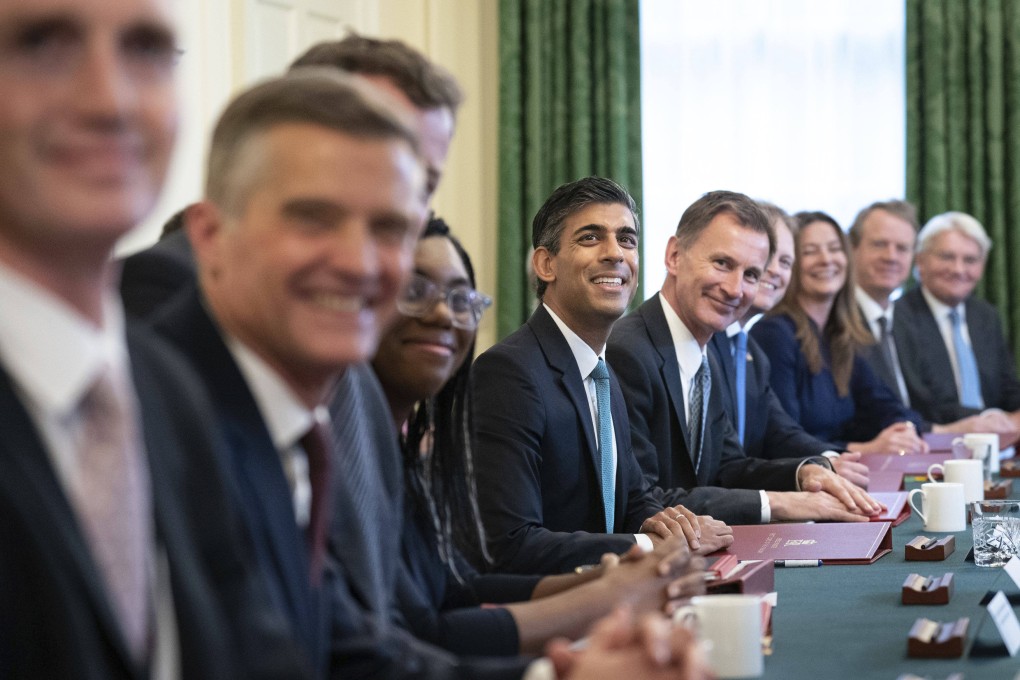Opinion | Britain’s Sunak is choosing pragmatism towards China, but his own MPs aren’t convinced
- Faced with an ailing economy and weary public, new UK leader Rishi Sunak has signalled that he won’t risk upsetting valuable trade ties with Beijing
- But this stance comes at a delicate time internationally, and in his own party Sunak must contend with an increasingly vocal anti-China faction

Britain has been so self-absorbed in recent months that new Prime Minister Rishi Sunak has limited himself to repeating two key messages his predecessors already considered a sine qua non on the world stage: Brexit and support for Ukraine are irreversible. For the world’s sixth largest economy, nuclear power and permanent member of the United Nations Security Council, such statements hardly qualify as a foreign policy vision.
Even more so, as Sunak is an unknown quantity in the geopolitical arena. Unlike his direct predecessors, Liz Truss and Boris Johnson, he did not serve as Secretary of State before moving into 10 Downing Street.
However, that inexperience turns out to be a surplus in Sunak’s case. After all, a man without a foreign policy doctrine written in stone is much more likely to rely on pragmatism than staunch ideology.
His penchant for realpolitik became apparent during his speech. Although Sunak stated his government recognises that Beijing poses a “systemic challenge to our values and interests”, he did not describe China as a “threat” to the kingdom’s security. This is particularly noteworthy given that Liz Truss was reportedly determined to tag the threat label onto China.
.jpeg?itok=HjPEnbzk&v=1747124063)